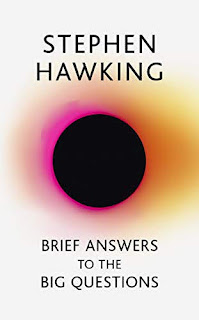WTF? Robert Peston
WTF? Robert Peston
What have we done? Why did it happen? How do we take back control?
Hodder & Stoughton 2017 £9.99 (Kindle) ISBN 978 1 473 66132 5 288pp
I got this book because I’m dazed by the last two years. I want to understand Brexit, Trump, the 2017 election, Grenfell and ITV’s Robert Peston seemed to have the verve and colour to be my mentor. He turned out to be literally colourful in his language. Naively I hadn’t realised the title includes a hidden expletive ‘what the f…?’. Swallowing that discomfort I followed through the analysis by this leading economist and found it a passionate, highly readable document. The book begins and ends with a letter to Peston’s late father, a powerful literary device.
Peston admits his surprise and discomfort at Brexit and Trump’s election going on to analyse forces at work many of us were blind to which triggered especially the former. The perception of a privileged ‘liberal elite’, the decline of social mobility, lack of investment away from the south, a long freeze in living standards for most, wealth concentrated in too few hands and overmuch in property, and low interest rates. I was helped by the insight that Brown and Osborne mistakenly attempted prudent financial management valid for individuals but not for national economies. It seems ‘austerity’ isn’t so prudent in the latter scenario as a lesser evil of borrowing helps employment and the release of gifts without which there’s inevitable social discontent.
Peston’s reflection on May and Corbyn seem fair - he has to cover his back as ITV political editor - and bring out complementary skills. The former has proven experience in government but, in contrast to her allegedly warm private circle, failed in the election partly on account of ‘her painfully stiff public persona’. The latter has no government experience but graphically captured the public imagination with ‘a reminder that our country is a place of dynamic, generous and creative people with massive potential’. I found Peston’s analysis of the UK and global political scenario credible noting he pulls no punches on Boris Johnson and Donald Trump.
WTF addresses the challenge of ‘digital businesses spawning billionaire owners employing just a few tens or hundreds of people’. How does the human workforce adjust to a world in which we have hamburger-cooking robots able to assemble and cook 360 hamburgers an hour? Jobs that require non-cognitive human interaction eg emotional intelligence are least at risk. ‘For an accountant, the probability of vocational extinction is a whopping 95%. For a hairdresser, it is 33%’. The emergence of artificial intelligence risks exacerbating the unfair distribution of earnings since the reward for capital is enormous and for labour more paltry. Peston suggests an annual levy on those with assets over £500,000 and, more radically, a revolution in our schools. ‘There is little focus [in schools] on, and time for, encouraging creativity, flexible thinking, confidence, intuiting, empathising, the ability both to lead and work in a team, and acquiring the capacity to listen, observe and adapt. It is worse today...than in the 1960s and 1970s.’ The Grenfell fire warns about unbridled capitalism and the deceit that public-sector investment is always inferior to private-sector investment shown up by the neglect of safety regulations. The working out from the Grenfell disaster brings a reminder of the need to restore confidence that a proper home is within everyone’s reach.
As a man of letters not numbers I can find writings on economics obtuse. WTF breaks the mould with a passion derogatory to the recent culture of austerity and its feisty call for government to do what it's there to do - better invest in the public goods and services that enrich us all.




Comments
Post a Comment